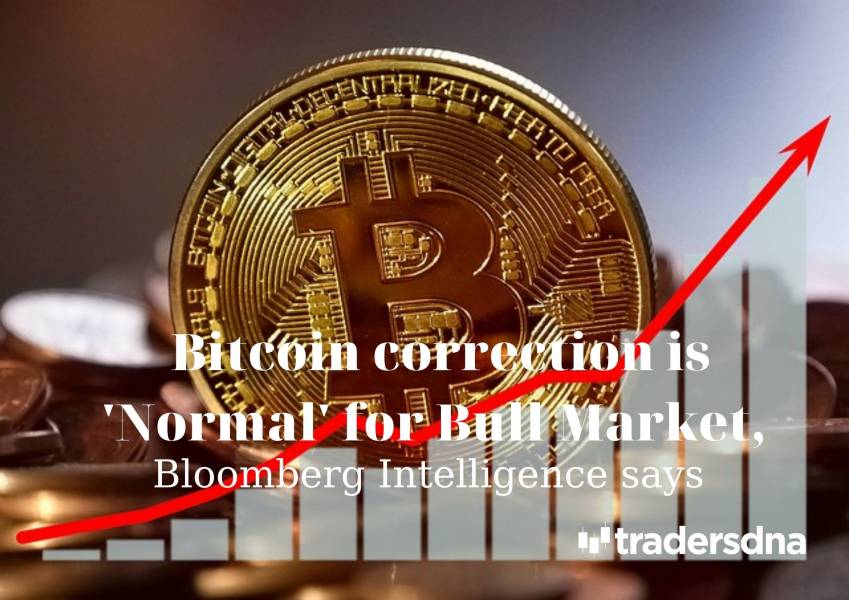· According to a recent Bloomberg Intelligence report, Bitcoin correction below $50,000 is ‘normal’ for bull markets as it probes for support and flushes out excesses, but key underpinnings remain in place.
· The strength of Ethereum – the number two crypto – which is above its $2,000 threshold price and the imminent launch of US crypto ETFs point to continued growth in Bitcoin.

Bitcoin correction below $50,000 is ‘normal’
Bloomberg Intelligence (BI) pointed out that strength of Ethereum and launch of US crypto ETFs underpin the bullish trend.
Bitcoin correction below $50,000 is ‘normal’ for bull markets as it probes for support and flushes out excesses, but key underpinnings remain in place, a new report published by BI says.
The strength of Ethereum – the number two crypto – which is above its $2,000 threshold price and the imminent launch of US crypto ETFs point to continued growth in Bitcoin, BI says, with the market seeming to play out the old traders’ adage of ‘if it seems easy, something’s wrong’,
Recovery trend
“Stabilisation, base-building and recovery around the $50,000 mark is what we expect from the benchmark crypto, which remains on track to becoming the global digital-reserve asset in a world heading that way,” said BI Commodity Strategist Mike McGlone.
No x, BI says.
The BI report, Bitcoin Bear-Market or Dip in the Uptrend, notes that Ethereum’s performance provides good technical guidance for Bitcoin as it represents investor interest in the rising tide for crypto assets, fintech, decentralised finance (DeFi) and exchanges (DExs).
Bitcoin may dig for support near its late-February level of around $43,000 and its 20-week moving average closer to $44,000, but BI believes the fluctuations are ‘normal noise’ within a broader bull market.
The possibility of risk
A key risk for investors would be the rejection of ETF applications by the US Securities and Exchange Commission, but that’s a fading possibility, the report adds.
Read more: Is bitcoin safer than cash?
Tradersdna is a leading digital and social media platform for traders and investors. Tradersdna offers premiere resources for trading and investing education, digital resources for personal finance, market analysis and free trading guides. More about TradersDNA Features: What Does It Take to Become an Aggressive Trader? | Everything You Need to Know About White Label Trading Software | Advantages of Automated Forex Trading








